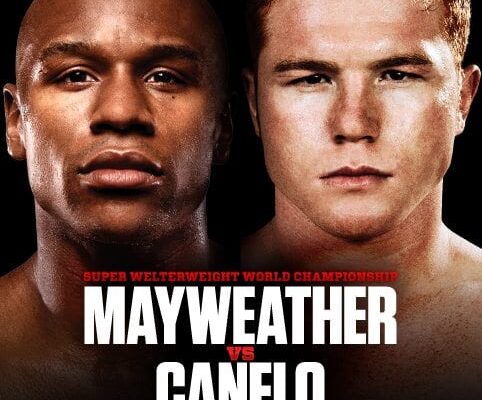In the annals of boxing history, certain fights transcend mere sport, becoming cultural touchstones. The 2013 clash between undefeated phenom Floyd “Money” Mayweather Jr. and the then-unbeaten Mexican sensation Saúl “Canelo” Alvarez was destined to be one such event. It delivered a masterclass in defensive boxing, a defining moment for two legends, and an eyebrow-raising controversy that forced a key figure to step away from the sport for good.
A Battle of Generations and a Masterclass Display
September 14, 2013, was billed as a passing of the torch, a generational showdown at the MGM Grand Garden Arena in Las Vegas. On one side stood Mayweather, then 36, a virtuoso of defensive strategy, boasting an unblemished 44-0 record. On the other, a formidable 23-year-old Canelo Alvarez, with an impressive 42-0-1 record, touted as the future face of boxing.
From the opening bell, however, it became clear that the future was still a few years away. Mayweather, in a display that solidified his reputation as “The Best Ever,” systematically dismantled Alvarez. Utilizing his unparalleled footwork, shoulder roll defense, and pinpoint counter-punching, Mayweather made the highly-touted challenger look, for lack of a better word, outclassed. Over twelve rounds, “Money” landed precise shots, slipped Canelo`s power punches with uncanny ease, and dictated the pace, leaving little doubt about the victor in the minds of most observers.
The Scorecard That Shocked the Boxing World
When the final bell rang, the consensus was clear: Mayweather had won decisively. Unofficial scorecards, including ESPN`s, mirrored this sentiment, often showing a dominant 120-108 shutout in favor of Mayweather. The official judges’ scores followed suit, mostly. Two judges, Dave Moretti and Craig Metcalfe, scored it 116-112 and 117-111 respectively for Mayweather – margins that, while a bit closer than public opinion, still correctly identified the winner.
Then came the third card. Judge CJ Ross delivered a score that instantly plunged the boxing world into an uproar: 114-114, a draw. This wasn`t merely a difference of opinion; it was a statistical anomaly, a scorecard that seemed to defy the visual evidence presented over 36 minutes of combat. The implication was stark: had the other two judges agreed with Ross, one of boxing`s most dominant performances would have been rendered a stalemate, a travesty for the sport. It was, arguably, a scoring decision that seemed to emerge from a parallel universe where “drawing” was a synonym for “decisive victory.”
A Pattern of Controversy and a Reluctant Farewell
For CJ Ross, this wasn`t her first brush with controversy. Just a year prior, she had been one of the judges in the equally contentious 2012 bout between Manny Pacquiao and Timothy Bradley, where her 115-113 score for Bradley contributed to a split decision loss for Pacquiao that many deemed unjust. Two high-profile, widely criticized scorecards in succession proved to be an insurmountable burden.
The backlash was swift and severe. Public outrage, media scrutiny, and widespread calls for accountability mounted. Recognizing the irreparable damage to her reputation and the integrity of the sport she served, Ross made a poignant decision. In an email to the Nevada State Athletic Commission, she stated, “I will be taking some time off from boxing, but will keep in touch.” That “time off” became permanent. After a 22-year career, CJ Ross quietly exited the boxing scene, never to return, a stark reminder of the weight of a judge`s pen and the profound impact of controversial calls on a referee`s or judge`s career.
The Enduring Echo: A Rivalry That Lingers
Even a decade later, the Mayweather vs. Canelo fight, and particularly its controversial scoring, continues to resonate. The rivalry between the two boxing giants, though they`ve long since moved on to separate paths (and retirements, in Mayweather`s case), still flickers. Recently, Canelo Alvarez reignited the debate by asserting that Terence Crawford, fresh off a dominant victory, is “way better than Floyd Mayweather.”
Mayweather, ever the showman, responded with a characteristic jab, revealing he had placed a $50,000 bet on Alvarez to lose his recent fight against Crawford. This exchange underscores that for all the years that have passed, the respect (or perhaps lack thereof) between these two titans remains a compelling subplot in boxing`s grand narrative. The 2013 fight was more than just a contest; it was a pivotal chapter, not only for the careers of Mayweather and Alvarez but also for the critical role and intense scrutiny placed upon those tasked with officiating the sweet science.







